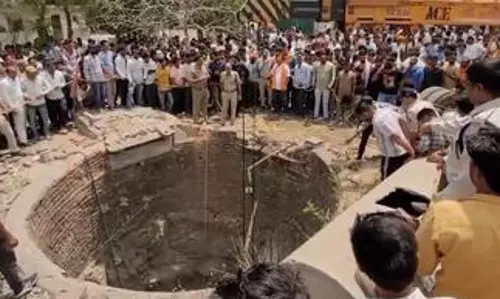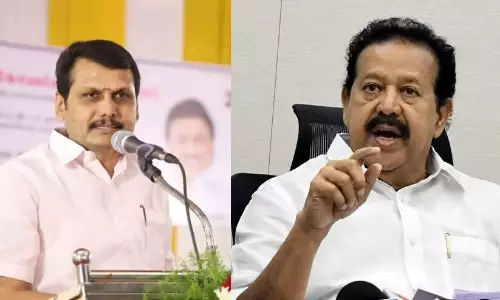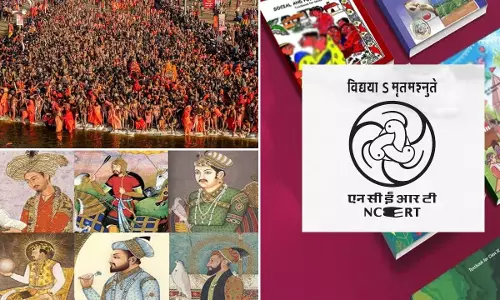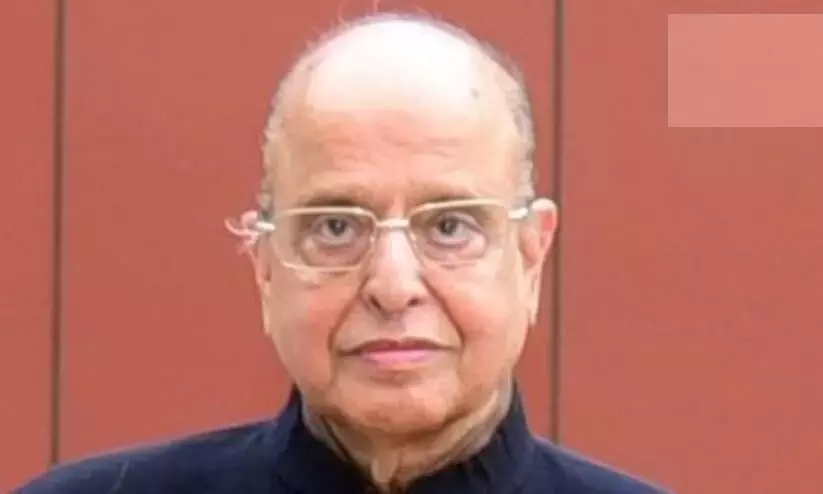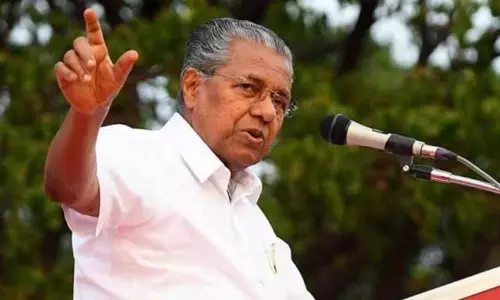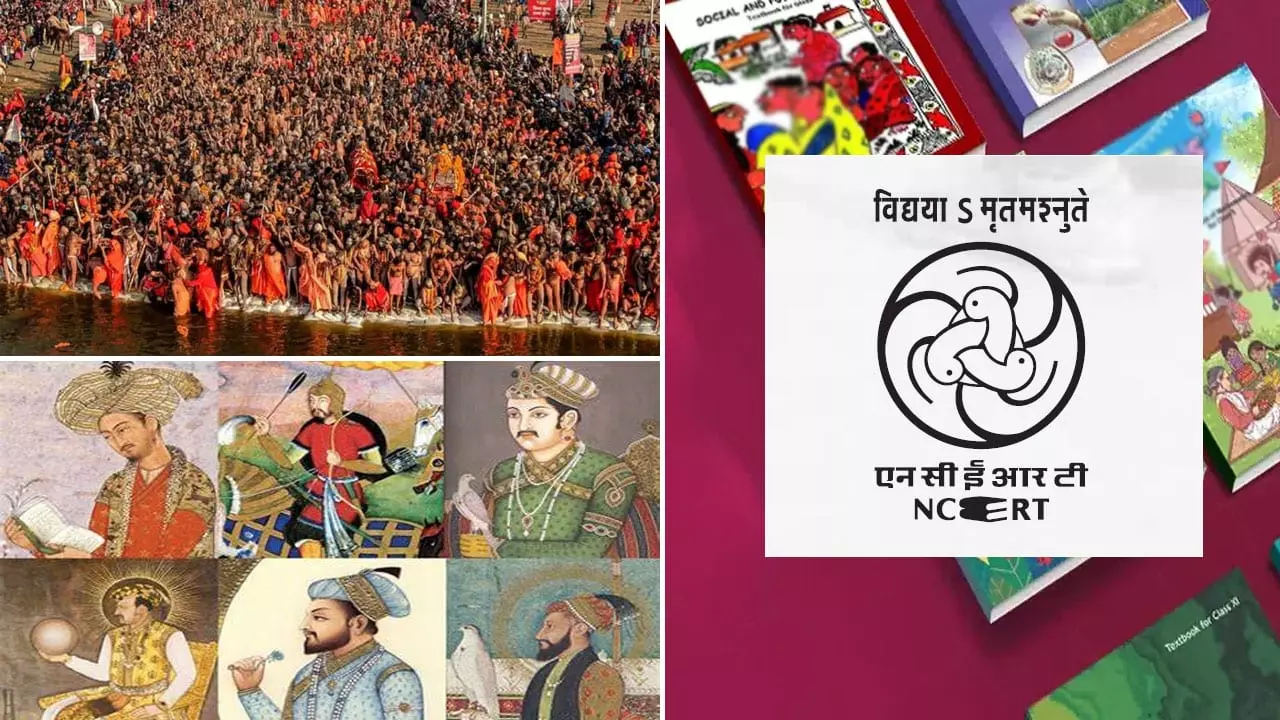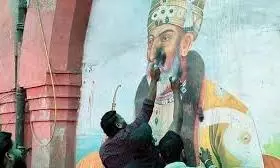
New NCERT textbooks drop Mughals, Delhi Sultanate; add 'sacred geography', Maha Kumbh
text_fieldsNew Delhi: The new NCERT Class 7 textbooks have dropped all references to the Mughals and Delhi Sultanate, while introducing chapters on Indian dynasties, “sacred geography,” the Maha Kumbh, and government initiatives like Make in India and Beti Bachao, Beti Padhao. Released this week, the revised textbooks align with the new National Education Policy (NEP) and the National Curriculum Framework for School Education (NCFSE) 2023, which emphasize Indian traditions, knowledge systems, and local context.
NCERT officials, when contacted, clarified that the released editions are only the first part of the textbooks, with the second part expected in the coming months. However, they did not confirm whether the dropped topics would reappear later.
Earlier, during syllabus rationalisation in the 2022–23 academic year amid the COVID-19 pandemic, NCERT had trimmed detailed sections on the Mughals and Delhi Sultanate, including dynasties like the Tughlaqs, Khaljis, Mamluks, and Lodis. A table detailing Mughal emperors’ achievements was also removed. The newly released books have now erased all references entirely, replacing them with fresh chapters.
The Social Science textbook "Exploring Society: India and Beyond" features new chapters on ancient Indian dynasties such as the Magadha, Mauryas, Shungas, and Satavahanas, highlighting “Indian ethos.” Another new chapter, “How the Land Becomes Sacred,” focuses on pilgrimage sites in India and abroad associated with Islam, Christianity, Judaism, Zoroastrianism, Hinduism, Buddhism, and Sikhism. It introduces the concept of "sacred geography," discussing networks of sacred sites like the 12 jyotirlingas, char dham yatra, and Shakti pithas, along with revered rivers, mountains, and forests. The chapter also quotes Jawaharlal Nehru describing India as a land of pilgrimages, stretching from the icy peaks of Amarnath and Badrinath to Kanyakumari at the southern tip.
The textbook discusses the varna-jati system, claiming it initially offered societal stability but later grew rigid, particularly during British colonial rule, leading to social inequalities. The Maha Kumbh Mela, held in Prayagraj earlier this year and reportedly attended by around 660 million people, is mentioned, though the tragic stampede that killed 30 pilgrims and injured several others is not noted.
The new editions also highlight government initiatives such as Make in India, Beti Bachao Beti Padhao, and the Atal Tunnel. A chapter on the Constitution of India explains that earlier citizens were not permitted to fly the national flag at their homes, a rule overturned by the Supreme Court in 2004, affirming that flying the tricolour is part of the Fundamental Right to Freedom of Expression.
In the new English textbook "Poorvi," out of 15 stories, poems, and narratives, nine are authored by Indian writers or feature Indian characters, including works by Rabindranath Tagore, A.P.J. Abdul Kalam, and Ruskin Bond. In contrast, the previous English textbook "Honeycomb" contained 17 pieces, with only four by Indian writers.
The comprehensive revamp of NCERT textbooks has drawn criticism from opposition parties, who accuse it of promoting "saffronisation." Last year, NCERT Director Dinesh Prasad Saklani had defended the changes, stating that teaching about riots could lead to young students becoming “negative citizens.”
With PTI inputs






